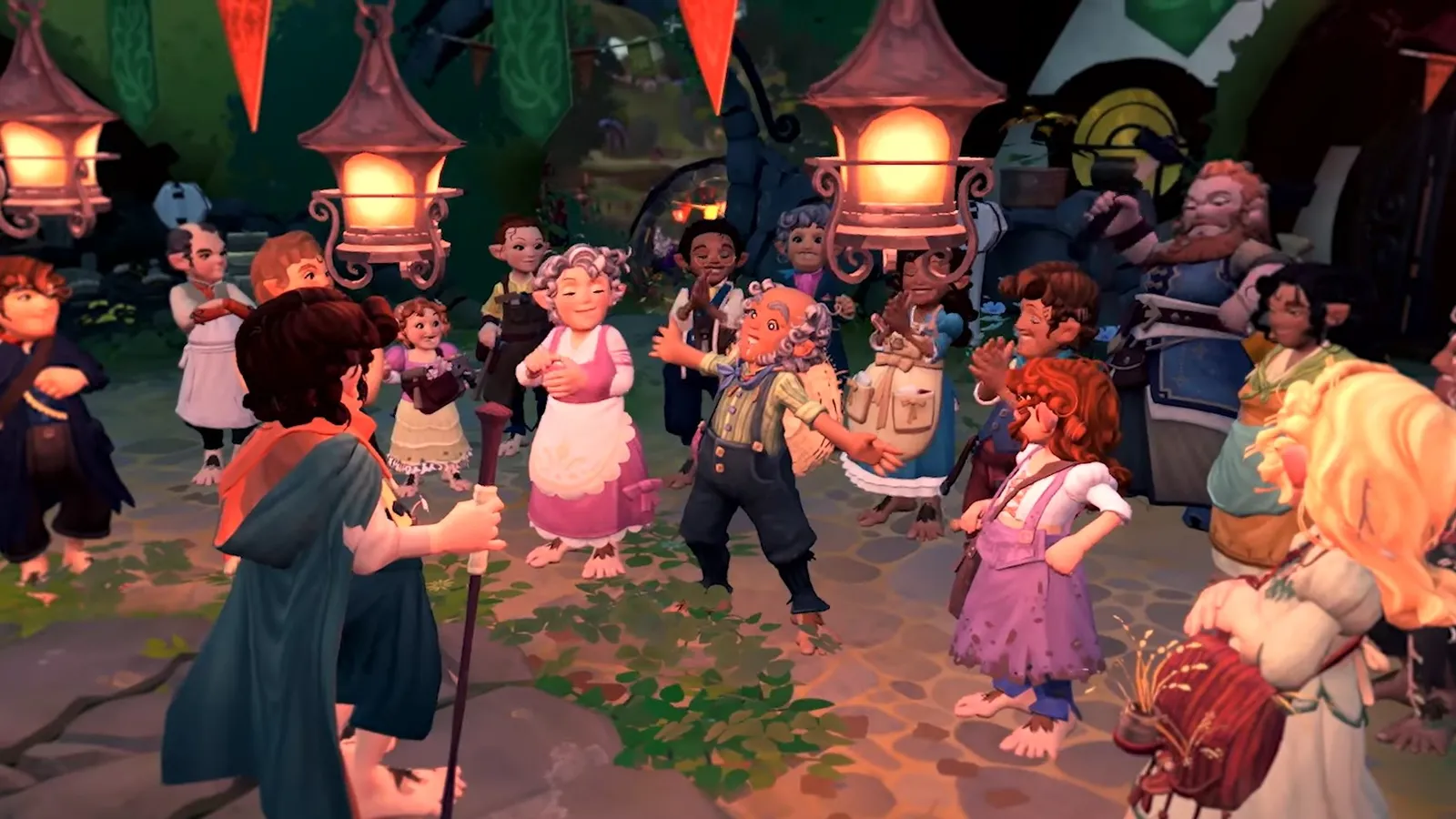One Does Not Simply Walk into Cozy: Where Tales of the Shire Stumbles

If you've ever pictured life in the Shire as a slow, sun-warmed scroll of peaceful meals and flower‑studded afternoons, Tales of the Shire is your digital dream—on paper. Developed by Wētā Workshop and published by Private Division, this life‑sim dropped on July 29, 2025 on PC, Switch, PS4/5 and Xbox One/Series X|S. But the actual experience? It’s a double‑edged pipe‑weed.
🍃 Setting: Bywater Through a Hobbit’s Eye

You're a newly minted Hobbit, relocating from Bree to the bucolic outskirts of Bywater. Your mission: farm, fish, cook, forge friendships, and shepherd Bywater toward official village status. The game lovingly models iconic landmarks: the Green Dragon Inn, rolling hills, wandering wildlife, and name‑dropping Tooks, Cottons, Gandalf, and even the young Samwise hinted at in conversations.
For Tolkien fans, lore‑infused details sparkle. But atmospheric art direction? It’s inconsistent—more quaint than cutting‑edge, sometimes edging into uncanny valley with character faces that raise an eyebrow or two.
Gameplay: Life of a Habitual Hobbit

Your daily grind? Gardening, fishing, foraging, cooking meals like second breakfasts and elevenses, and redecorating your hobbit hole via a generous grid‑free placement system.
Cooking

This is hands‑down the highlight: a tactile cooking minigame where you chop, sauté, and balance flavors along axes like smooth‑chunky and crisp‑tender. A satisfying novelty, especially early on when trying to feed townsfolk to advance community ties.
Foraging & Fishing

These chores resemble the genre’s familiar formula: fish in streams, pick berries, barter with vendors. They function fine but never evolve into anything deeply engaging.
Quests & Social Life

Here’s where the ideal falters. NPCs rarely open up: dialogue is minimal, no home visits, only fifteen total characters in town. Relationship development feels flat and characterless—turning your attempts at community into fetch‑quest fatigue. The social arc misses festivals, deep bonds, or evolving friendships; everything resolves too neatly, too quickly.
✨ Charm vs. Repetition: Which Vermin Wins?
What Works
- World‑building for Tolkien fans: References and setting earned high marks from critics who appreciated the lore authenticity.
- Cooking: A refreshing twist that outshines generic farming loops.
- Hobbit aesthetic: For a while, hobbit‑hole customization, cozy interiors, and berry‑pie visuals feel soothing.
What Doesn’t
- Repetitive quests: Bywater's climate never changes, tasks grow stale fast, and the map is small and static.
- Character design & visuals: Described as “terrifying” by some reviewers, with buggy animations and lifeless NPCs.
- Lack of progression: No long‑term goals or meaningful arc; momentum fades after about 13 hours.
- Tech quirks: Buggy across platforms—Switch and PC ports both suffer slowdown, crash risk, and visual glitches.
By launch, critics reported Metacritic hovering at 60, OpenCritic at 64, and only about 30 percent of critics recommending it. Some reviews went further: one even labeled it possibly the worst LOTR spin‑off to date, faute de better execution.
🚪 The Shadow of Scouring
One writer memorably pointed out that everything in Bywater feels set up to fail, thanks to one looming lore‑level spoiler: the Scouring of the Shire. A peaceful existence becomes emotionally fraught when you know industrial ruin is imminent. That tension quietly sours the cozy vibe—and accentuates narrative emptiness for lore‑savvy players.
🎯 Verdict: A Beautiful Idea, But Not a Game
Pro Tips
- You’re after light cooking mechanics? Tales of the Shire delivers.
- You want Tolkien Easter eggs and hobbit names popping on the horizon? Enjoy.
- Expecting a deep, evolving cozy sim with characters to bond with? Wait for patches.
Final Score
| Element | Grade |
|---|---|
| Atmosphere / Lore | B+ |
| Cooking Mini‑Game | A‑ |
| World & Visuals | C (sometimes D) |
| NPCs & Dialogue | D |
| Replayability | D‑ |
🧶 Final Thoughts: A Gentle Hobbit Sorry

Imagine settling into a patch of Shire green grass, snuggling into your hobbit bed, content to tend carrots and chat. That’s Tales of the Shire—initially. But as the hours pass, the gentle lull becomes predictable hum. The unspoken promise of hobbit life—warm relationships, community festivals, surprising turns—never materializes.
Wētā Workshop’s artistry shows in charming touches and lore fidelity, yet the game feels unfinished: underpopulated, undercooked, underwhelming. Critics said it didn’t improve with its launch delay; the issues persisted from early demo to live version. One particularly scathing take said: “even the idyllic life of a hobbit fails to charm in this stagnant digital world.”
Still, if your craving is for a slow, cozy afternoon playing hobbit chef and planting daisies in perfect relative peace, and if you're content with about 15 hours of that, there’s a gentle charm tucked inside the bugs and blandness. But be warned: you’ll finish thinking, “This is sweet—but where’s the life?”
TL;DR
Tales of the Shire is all Hobbit cheer on its box—but inside that box is a quiet life that fades into quiet boredom. Great for cooking fans and Tolkien detail‑lovers. Poor for anyone hoping for dynamic gameplay, evolving social bonds, or long‑term goals. A cozy idea trapped in a sleepy execution.
Conclusion: A well‑woven tapestry of Tolkien lore and cozy sim mechanics meets a tragic flaw: it can’t sustain itself past the novelty. You'll enjoy low‑stakes hobbit routines—until you don’t.





